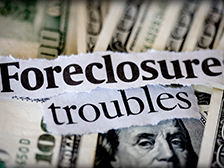Nationally, 4.5 percent of mortgages were in some stage of delinquency (30 days or more past due including those in foreclosure) in June 2017, according to a report released today by CoreLogic, a global property information provider. This represents a 0.8 percentage point decline in the overall delinquency rate compared with June 2016 when it was 5.3 percent.
As of June 2017, the foreclosure inventory rate was 0.7 percent, down from 0.9 percent in June 2016 and the lowest it has been since July 2007.
In Massachusetts, 4.3 percent of mortgages were 30 or more days delinquent in June 2017.
The national rate for early-stage delinquencies, defined as 30 to 59 days past due, was 2 percent in June 2017, down slightly from 2.1 percent in June 2016. The share of mortgages that were 60 to 89 days past due in June 2017 was 0.6 percent, also down slightly from 0.7 percent in June 2016.
“The CoreLogic Home Price Index increased 6 percent and payroll employment grew by 2.2 million jobs in the year ending June 2017, supporting further declines in delinquency rates,” Dr. Frank Nothaft, chief economist for CoreLogic, said in a statement. “The forecast for the coming year includes 5 percent home price appreciation and further job growth, putting renewed downward pressure on mortgage delinquency rates.”
Since early-stage delinquencies can be volatile, CoreLogic also analyzes transition rates. The share of mortgages that transitioned from current to 30-days past due was 0.9 percent in June 2017, unchanged from June 2016. By comparison, in January 2007, just before the start of the financial crisis, the current-to-30-day transition rate was 1.2 percent and peaked in November 2008 at 2 percent.
“After peaking at 3.6 percent in December 2010, June’s 0.7 percent foreclosure rate was the lowest in 10 years,” Frank Martell, president and CEO of CoreLogic, said in a statement.






